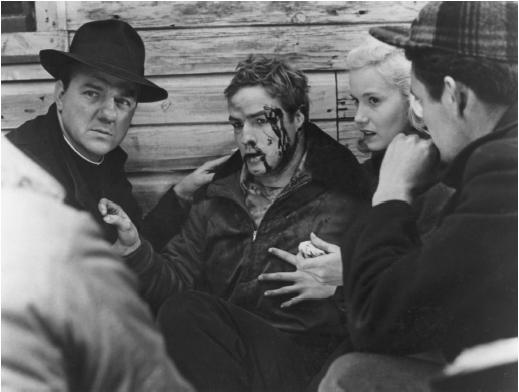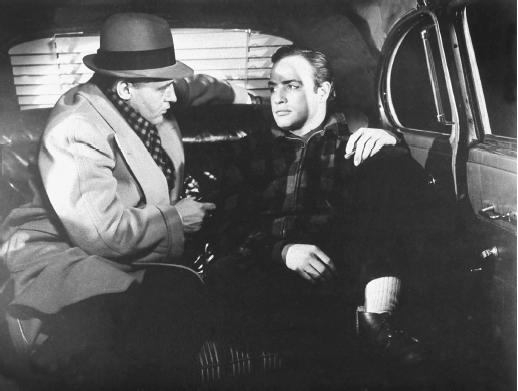I have a strong appreciation for Elia Kazan even though I realise that it’s often more of a sympathetic appreciation than an objective appreciation of his talent. Not that the man hasn’t done good work (three of his films appear in my top 100 - previously, previously) - look at his resume! but I always feel sorry for him. The first thing that occurs too often when they hear his name is his involvement in the naming of names in post-war America. No paragon of goodness myself I often wonder about the backlash that occurs when persons criticise Kazan. It’s a dissonance that further ensues when one of my favourite playwrights Arthur Miller severed his bond with Kazan over the issues. Miller wrote his masterwork “A View From the Bridge” to show what he thought of informers (a play I love), Kazan crafted On the Waterfront to assess the motives behind the informer. I can’t pit play against film, but I will say that few stories of the time are as moving as Kazan’s On the Waterfront. It’s the classic Brando performance, the rebellious young man at odds with the world he lives with. On the Waterfront’s story is simple.
Not so long ago I cited Brando’s performance as the best actor decision the Academy made. It’s a clichéd thought, and though I may change some of the choices I’m not liable to change that one. The film is constructed as such that Brando is give a chance to run the full gamut of his talent, and he plays it just right – never too much, or too little. There is not a moment onscreen where his eclectic charm isn’t obvious. Little moments like his chemistry with Eva Marie Saint, his conflicted decisions between right and wrong and those fierce final moments with Lee J. Cobb. It is true that On the Waterfront is at its best when he take the screen, but considering that he is in virtually every scene that means the film is always soaring.
However, it’s not a one-man show. That’s what makes On the Waterfront the little bit of excellence that it is. From Eva Marie Saint’s nervous Edie, to Karl Malden’s somewhat hammy (but still effective) priest, Lee J. Cobbs terrifying “boss” and Rod Steiger’s conflicted brother. Take for example the famous scene from On the Waterfront, everyone knows that Brand “coulda been a contender”, but as noted in the DVD commentary this scene works not only because of the ferocity of Brando here. Steiger knows full well when to hold back and when to let loose. The expression on his face as he gives Brando that gun is a brilliant moment for him, he knows full well what this means for his life and with two geniuses in the backseat of that car Kazan works magic.
For a director so often enraptured with the eccentricities of humanity I can see how On the Waterfront seems like a discordant note in Kazan’s repertoire. I’m aware, actually, that it’s more than just a little zeitgeist and perhaps just a tad – a tad – but On the Waterfront is crafted with intelligence and with skill. Always taut, never pandering, On the Waterfront may be idealist in the strictest of definitions but it is never implausible and it is smart. In the battle of Miller vs Kazan I can’t choose a winner, but On the Waterfront always thrills me and remains as a deserving Best Picture winner, if there ever was one. It sits snugly at #26 on my list of favourite films. It may be regarded as American classic, but I don’t think it takes an American to love it.



No comments:
Post a Comment